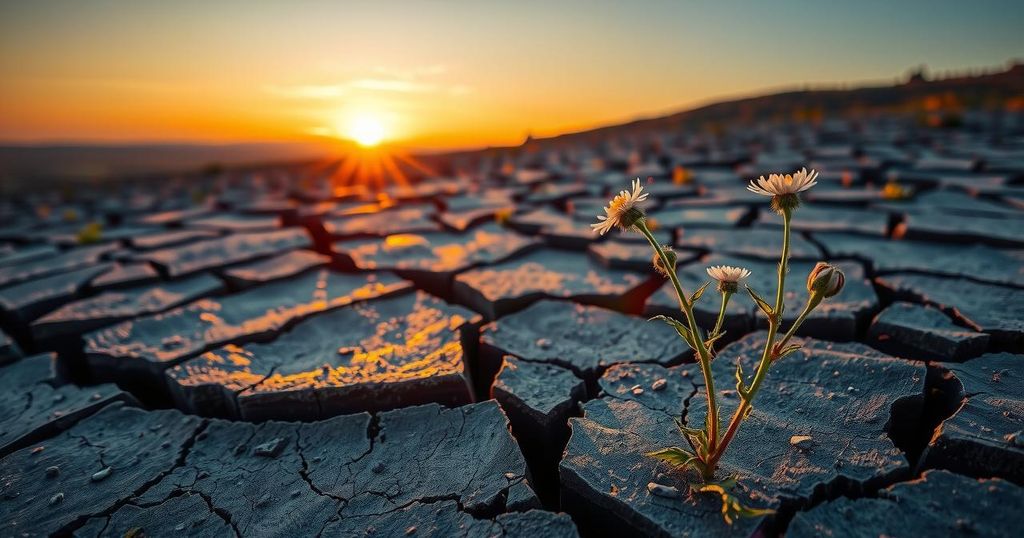Recent Earthquake in Morocco Exacerbates Psychological Trauma from 2023 Disaster

A 5.2-magnitude earthquake hit northern Morocco, causing widespread fear reminiscent of the deadly Atlas quake in September 2023. Although damage was minimized, the psychological impact of past trauma was intensified. Local residents and organizations expressed concern over the lack of support for mental health, amid growing fears of aftershocks and loss.
On a recent Monday night, a 5.2-magnitude earthquake struck northern Morocco, impacting several regions, including the capital, Rabat. The earthquake’s epicenter was located in the Brikcha commune of Ouazzane province, an area less mountainous than the Atlas region that suffered a devastating quake in September 2023. The tremors triggered widespread fear, with residents recalling traumatic experiences from that earlier disaster.
Aicha Khayi, a local resident, described her panic when she felt the earth shake beneath her. “I was almost asleep when I felt the ground shaking beneath me. I ran outside and tried to wake up my neighbours,” she recounted. The memories of losing loved ones during the Atlas earthquake left her terrified of potential devastation this time.
Brikcha is a rural region comprising 25 villages and approximately 9,400 residents. Unlike the remote mountainous areas affected previously, Brikcha boasts more accessible roads, reducing the likelihood of severe destruction. Nasser Jabour, head of the National Institute of Geophysics, indicated that the quake’s impact was minimal, noting that any damage was primarily superficial.
Local authorities assured that the earthquake did not result in casualties or significant structural damage. In the wake of the tremors, officials advised residents to remain outdoors as assessments for aftershocks were conducted. Yet, anxiety spread widely; people from Tangier to Rabat evacuated their homes, clutching valuables and contacting loved ones.
Mohamed El-Wardi, a Kenitra resident, expressed relief that no immediate damage was reported, but he remained haunted by the previous disaster’s toll. “Last time, we didn’t know anything until morning. I lost relatives in the Al-Haouz earthquake,” he stated. Many, including the elderly, prayed for the safety of their families and expressed deep-seated fears of further loss.
The experience of this latest earthquake reignited fears across Morocco, especially among survivors of the devastating 2023 earthquake which claimed nearly 3,000 lives. Souhail Abounaim from Psychologues Maghreb highlighted that the post-traumatic effects of the earlier disaster continue to affect citizens, with many showing symptoms of PTSD. The lack of adequate psychological support exacerbates these struggles.
The organization, which provides free psychological assistance, is actively involved in helping those affected. Abounaim noted, “We are still working with other activists in the quake-struck areas to help people.” He criticized the government for its lack of support, stating, “The state is offering nothing,” which highlights the urgent need for resources and aid to address ongoing psychological trauma among survivors.
The recent 5.2-magnitude earthquake in northern Morocco has reignited fears stemming from the catastrophic 2023 quake, leading to widespread psychological distress among residents. Although this earthquake resulted in minimal physical damage, the trauma from previous events continues to haunt many, with insufficient governmental support for mental health care. The experiences shared by residents illustrate the profound impact of past tragedies on present realities.
Original Source: www.newarab.com








